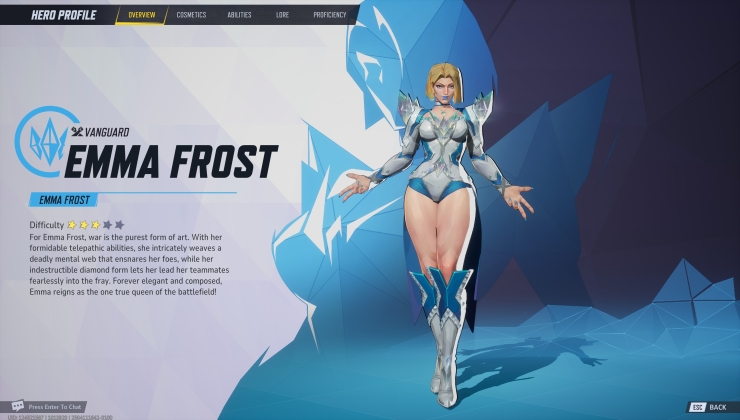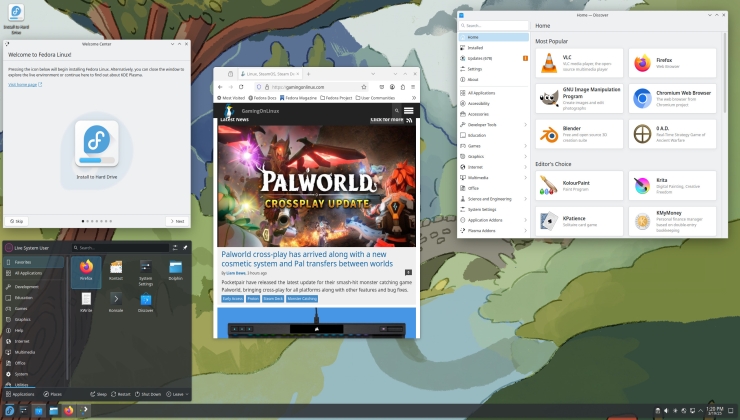Flathub, the main front-end for Flatpak packages, which serves various applications and games to many different Linux distributions and Steam Deck has surpassed 2 billion downloads.
At time of writing there's been 2,004,922,946 downloads. To me, it's quite worth celebrating. Long have we seen the complaints from people wanting to switch to Linux, or testing out the waters, with how fractured the ecosystem is overall. You've seen the complaints at some point I'm sure.
But, being able to tell people "just download it from Flathub", and for a lot of Linux distributions that's now simply a case of opening up the local software app like GNOME Software or KDE Discover, it's a different and much easier world.
From the Flathub Statistics page:
A keen eye might note when it started rocketing upwards. As a reminder, the Steam Deck from Valve released in February 2022, and it certainly seems like around that time it started shooting up. Not surprising, since a lot of people enjoy the Steam Deck's Desktop Mode, which is powered by KDE Plasma with Flathub being the way to install most things there.
That being said, there are many "mainstream" apps that really need verified status (my current wish list includes VLC, GNUCash, Steam, Blender, Inkscape and Nextcloud Desktop). Hard disk space wise, flatpaks haven't been too bad either. For 61 apps (and their runtimes) I'm only looking at 21.9 GB. Which in comparison to the games I run, this is nothing.
Last edited by Numeric on 24 Jun 2024 at 7:54 pm UTC
We don't need flatpack or snap or whatever for Mozzila, Gnome or KDE softwares. The FOSS software from highly trusted source are the easiest things to maintain on distribution repo. Flathub should be mostly commercial or more obscure FOSS project and software store app should be able to mix distro software when it makes the most sense and packaged software.
I have a mixed feeling about Flatpack. I have the impression it tries to replace package repositery whereas the problem is that distribution repository should be extended.
We don't need flatpack or snap or whatever for Mozzila, Gnome or KDE softwares. The FOSS software from highly trusted source are the easiest things to maintain on distribution repo. Flathub should be mostly commercial or more obscure FOSS project and software store app should be able to mix distro software when it makes the most sense and packaged software.
for distros like SteamOS and Bazzite and every immutable distro they are essential. I am actually making a distriso based on bazzite with all the uneeded bloat removed and its heavily flatpak focused. Flatpak has alot of pain points I get it which is why I am hoping to solve a bit of them in my distro lol. Themes work out the box in mine and working on having sane default permissions so things just work hopefully.. so far on my machine which I daily drive it it works great.
Last edited by tohur on 25 Jun 2024 at 12:33 pm UTC
Nice. It's good to see that Steam Deck owners are also tinkering around with the desktop. This will help let people know that Linux desktop is now far more usable than most people think.
I've mixed feelings about that.
At one side it's a sign of failure, at the other it's a driver for improvement.
Pros:
A. Everyone tinkering on Linux makes the whole ecosystem slightly better, just by trying to improve their own experience and gaining expertise, information and sometimes even code to improve it(whoo FOSS collab).
B. It shows to them the value of controlling your own system.
Cons:
A. These people don't tinker for fun, but to run the software they want to run, which indicates that the out of the box experience is still subpar.
I have a mixed feeling about Flatpack. I have the impression it tries to replace package repositery whereas the problem is that distribution repository should be extended.
We don't need flatpack or snap or whatever for Mozzila, Gnome or KDE softwares. The FOSS software from highly trusted source are the easiest things to maintain on distribution repo. Flathub should be mostly commercial or more obscure FOSS project and software store app should be able to mix distro software when it makes the most sense and packaged software.
Agreed, and maybe I'm just old and bitter about things changing, but I strongly blame the popularity of rolling distributions (Looking at you, Arch). Not that rolling distributions are a new concept or anything, but they didn't used to be so mainstream/popular. Frankly, most people never needed the latest and greatest packages/ABIs at all times, and repositories were awesome -- and used to be a hugely touted benefit over the competition (Windows).
Frankly, with snaps, flats, and appimages I dare say Linux has become kind of a pain in the ass lately. Even debs/rpms are rarely distributed via repository anymore, often just being resources alongside things like appimages in github releases. The only things that aren't annoying these days are base system packages, because they're updated and distributed via repositories.
Nice. It's good to see that Steam Deck owners are also tinkering around with the desktop. This will help let people know that Linux desktop is now far more usable than most people think.
I've mixed feelings about that.
At one side it's a sign of failure, at the other it's a driver for improvement.
Pros:
A. Everyone tinkering on Linux makes the whole ecosystem slightly better, just by trying to improve their own experience and gaining expertise, information and sometimes even code to improve it(whoo FOSS collab).
B. It shows to them the value of controlling your own system.
Cons:
A. These people don't tinker for fun, but to run the software they want to run, which indicates that the out of the box experience is still subpar.
Not exactly. We are not talking about people tinkering; we don't know how many people are tinkering around with the desktop. This graph shows you people downloading new apps from Flathub, which means they are people looking beyond what can be found in the Steam store. They could be installing emulators, open source games, or maybe some desktop apps, and that has nothing to do with the experience being subpar. Quite the contrary, this is a positive experience where you are not locked down like is the case with consoles.
If I want the latest versions of emulators like Dolphin, PCSX2, or RetroArch, it's as easy as installing the Flatpak. Likewise with Firefox, or the various KDE software.
I will take to your positive outlook.Nice. It's good to see that Steam Deck owners are also tinkering around with the desktop. This will help let people know that Linux desktop is now far more usable than most people think.
I've mixed feelings about that.
At one side it's a sign of failure, at the other it's a driver for improvement.
Pros:
A. Everyone tinkering on Linux makes the whole ecosystem slightly better, just by trying to improve their own experience and gaining expertise, information and sometimes even code to improve it(whoo FOSS collab).
B. It shows to them the value of controlling your own system.
Cons:
A. These people don't tinker for fun, but to run the software they want to run, which indicates that the out of the box experience is still subpar.
Not exactly. We are not talking about people tinkering; we don't know how many people are tinkering around with the desktop. This graph shows you people downloading new apps from Flathub, which means they are people looking beyond what can be found in the Steam store. They could be installing emulators, open source games, or maybe some desktop apps, and that has nothing to do with the experience being subpar. Quite the contrary, this is a positive experience where you are not locked down like is the case with consoles.
I could make a point that when people install emulators they're tinkering out of necessity and thus showing my point, because they are adding functionality to their device that wasn't in the default behavior to be able to do the usecase they bought the device for, but that is arguing semantics and I really want you to be right.
So @sarmand is right Steam Deck users are using flathub, because they're enjoying the freedom of FLOSS and not out of necessity










 How to set, change and reset your SteamOS / Steam Deck desktop sudo password
How to set, change and reset your SteamOS / Steam Deck desktop sudo password How to set up Decky Loader on Steam Deck / SteamOS for easy plugins
How to set up Decky Loader on Steam Deck / SteamOS for easy plugins
See more from me